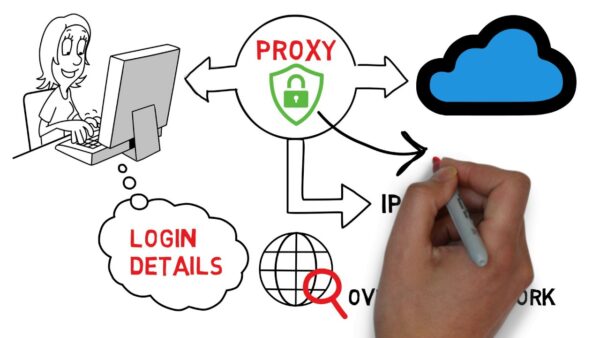Are you looking for a reliable security solution for your business? Chances are, you’ve already stumbled across virtual private networks (VPNs) and proxies as two popular choices on the market. Even though they both connect your device to a remote server, virtual private networks and proxies serve different purposes.
It’s important to distinguish the differences between the two to determine which one is the best choice for a business environment.
Proxies VS VPNs: The Pros
Both virtual private networks and proxies provide a higher degree of privacy by masking the user’s real IP address. But these two services take different approaches to anonymous browsing. Here’s how:
Proxies serve as a gateway that hides the actual IP address for essential purposes. They somewhat enable anonymous web browsing and help to avoid content restrictions based on geographical location. So, if you only need to hide your IP address to access YouTube videos that are otherwise not available in your region, proxy will get the job done.
VPNs connect your device to a distant server, thus replacing your local IP address with the address of the server. So, they enable the same access to YouTube videos or other restricted content. But from there, they also create an encrypted tunnel for your data to reach its intended destination (specific web page).
The difference is in the fact that VPNs take online security to a whole new level. While proxies only secure the HTTP and SOCKS calls from your browser, virtual private network services go a step further to encrypt the entire browsing experience. They encrypt all incoming and outgoing traffic tied to your device.
Moreover, a business VPN can add another layer of protection to your business network. For example, by using NordVPN Teams (business-focused virtual private network service), you can ensure that only employees connected to the VPN can access your corporate online platforms. Outsiders couldn’t reach them from any other network. It can reduce the chance of a data breach and protect corporate information.
Proxies VS VPNs: The Cons
If you compare the cons of proxies and VPNs, virtual private networks still emerge as the winner between the two.
For one, proxies offer far fewer features. They are also more often the cause of performance issues, such as poor streaming and downloading speed.
Proxies are also more likely to slow your system down. It makes them a poor choice for content streaming or more complicated tasks. Moreover, proxies are more vulnerable to security exploits compared to VPNs.
That said, proxies cannot fully protect private data. The free ones can even track and record your browsing activities.
VPNs, on the other hand, offer full protection without sacrificing performance speed. That is, of course, if you choose a reliable and trustworthy VPN service. Free VPNs can also cause performance issues and log users’ data. So it’s always better to invest in a more dependable service to ensure optimal security.
The only real downsides of virtual private network services are that they’re often more expensive and more complicated to manage.
Why You Should Use VPNs Over Proxies
The pros of VPNs outweigh the advantages of proxies for several reasons. For instance, VPNs provide total encryption of all traffic on a corporate network. It means companies can use them to secure many devices within a single network.
Besides security, VPNs usually come with better customer support teams. While managing a VPN might seem more complicated than using a proxy, most reliable services manage their own networks. They only leave the easy, intuitive work to the user.
Moreover, top VPN providers have strict policies against data logging. They don’t record their users’ private information in any shape or form.
The Verdict
Online security and accessing online content is the primary reason why people look for proxies, VPNs, and similar solutions. If you look at it from the security perspective, virtual private networks are a far more reliable solution for businesses.
Companies that collect customers’ data, such as email addresses, names, phone numbers, or even physical addresses, have a heavy responsibility on their shoulders. A VPN service that protects the entire corporate network can reduce the number of security threats coming their way.
It’s also recommended to raise awareness among the employees and encourage them to use virtual private networks on their personal devices. Moreover, businesses should pay extra attention to remote workers and the devices they use to access corporate data. Each unprotected device can turn into a vulnerability if connected to an open network.

